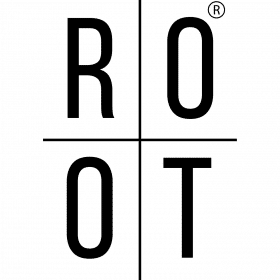Some people have a genetic condition called an MTHFR gene mutation. This mutation results in the body being unable to process folate, which is important for the health of the nervous system.
If you suspect you might have an MTHFR mutation, testing can be important because some mutations can lead to health issues like higher levels of homocysteine, which is an amino acid linked to heart disease and stroke. This condition might sound scary, but it is actually relatively common and can be managed with supplements, a healthy diet, and a healthy lifestyle.
What is an MTHFR Mutation?
So, what exactly is MTHFR? To get a little scientific, MTHFR stands for methylenetetrahydrofolate reductase. It’s an enzyme in our bodies that breaks down folate and an amino acid called homocysteine. Basically, the MTHFR genes give our bodies the ability to absorb and process all types of folate, including folic acid, which is essential to our overall health. A mutation in this gene can cause our bodies to be unable to break down the folate as well as they should, resulting in an increase in homocysteine and leading to health concerns that we’ll discuss next.
Conditions Associated with MTHFR Gene Variants
There are two different types of MTHFR gene variations, and you may have either one or both (or neither) gene mutations. The two variants are:
- C677T: Research shows about 38% of subjects appeared to have this specific gene variant.
- A1298C: This genetic variant was found in around 7%-12% percent of North American, European, and Australian people, though there is limited research on this.
It is possible to have a genetic risk factor for both variations.
The type of mutation you have and how many copies of those mutations might determine the conditions that you could experience. However, the conditions that research found to be associated with these MTHFR gene variants include:
- Hyperhomocysteinemia: This is higher than average homocysteine levels.
- Cardiovascular diseases: There might be an increased risk for cardiovascular disease related to higher levels of homocysteine. This could include coronary artery disease and heart disease.
- Birth abnormalities: MTHFR gene mutations could lead to neural tube defects or conditions such as microcephaly (a smaller-than-average head and possibly brain).
- Dementia: Mutations in the MTHFR protein could cause cognitive and memory issues.
- Mental health conditions: Studies of the C677T variation have been associated with an increased risk of depression, bipolar disorder, and schizophrenia.
- Drug-induced toxicity: The MTHFR mutation might put you at a higher risk of toxicity from meditations like methotrexate.
- Peripheral neuropathy: A neurological condition that damages the nerves.
How is an MTHFR Mutation Diagnosed?
A doctor can determine whether or not you have MTHFR variants through a physical exam, reviewing your medical and family history, and considering your current symptoms. Your doctor may recommend blood testing to check your homocysteine levels. Genetic testing can also help to identify and diagnose an MTHFR mutation since it is a genetic condition.
What is a MTHFR Gene Mutation Genetic Test?
The MTHFR gene mutation test is a blood test that looks for the two most common gene mutations. This test can be done by itself – basically just looking for the MTHFR mutation – or it can be done as part of overall genetic testing. The MTHFR gene mutation test can be used to find out if the MTHFR gene is causing increased homocysteine in your blood. It can also be used to estimate the risk of developing blood clots or early heart disease.
How Much Does a MTHFR Gene Mutations Test Cost?
The cost of this genetic test can depend on your insurance coverage. You can check with your insurance provider to find out how much it might cost. You can also purchase tests online, but these tests are not FDA-approved. The prices tend to vary between $65 to $249. If you decide to go with an online testing kit, read the label or online description to ensure that the lab reading the test is CLIA (Clinical Laboratory Improvement Amendments) certified. This means that they are at least regulated by the government.
Direct-to-Consumer Tests
These are the tests you can buy online or over the counter. They are usually swabs or saliva samples you seal and mail to the lab. Again, these costs usually range between $65 and $249, but they are often around $130.
Medical Provider Testing
MTHFR polymorphism testing that is done by a medical provider depends on a variety of factors, including your insurance coverage, the lab you use, and whether you include it in general DNA mutation analysis. To get a better idea of what a medical genetics test might cost, contact your insurance company and reach out to the lab you are considering going to.
Does Insurance Cover the Cost of a MTHFR Test?
Whether or not your insurance will cover the cost of these tests really depends on your insurance plan. If your doctor deems the testing necessary and recommends it, in many cases, the insurance will cover the costs of genetic testing. However, you should always check with your insurance provider ahead of time, as they may have different policies about what tests are covered.
Reading Your Test Results
A lab will provide you with your results, which will determine whether you’re positive or negative for the MTHFR gene mutation. They’ll also be able to show whether you have one, two, or both of the gene variants. These results will be reviewed with you by your doctor or by a lab technician.
Having only one of the MTHFR mutations may not affect your health, and you may not even notice. But, if you have two copies of the C677T gene mutation or a copy of both the C677T and A1298C variants, you may have increased homocysteine levels.
If your test comes back negative, that means you don’t have either of the two variations. However, you should follow up with your doctor if you have any symptoms or if your test results are positive for the MTHFR gene mutation.
MTHFR Treatment Options
Having this gene mutation doesn’t necessarily mean you’ll need treatment. Some people have the gene mutation and don’t show any symptoms. In fact, it’s a fairly common genetic condition, as about 30-40% of people in the U.S. have some kind of MTHFR polymorphism. But you may need treatment if you show high homocysteine levels or are pregnant or trying to get pregnant.
L-Methylfolate supplementation
The MTHFR gene mutation concerns the body’s difficulty converting folate, leading to a folate deficiency. So supplementing with L-Methylfolate can help your body process and increase the levels of folate, thus reducing the related health issues.
B-Vitamin Complex
L-Methylfolate is a form of vitamin B, so supplementing with other B vitamins, particularly Vitamins B12 (methylcobalamin), B6, and B2, can work together with methylfolate to increase the ability to process the folate in your body.
Dietary Changes
Dietary changes, like including more folate-rich foods, can help provide your body with more folic acid and reduce homocysteine levels. Foods rich in folate might include:
- Uncooked leafy greens like spinach, kale, and arugula.
- Legumes like beans, peas, and lentils
- Eggs
- Asparagus
- Citrus fruits like oranges, grapefruits, lemons, and limes
- Brussel sprouts
- Broccoli
Lifestyle Modifications
Making healthy lifestyle changes like getting more regular exercise, managing stress, quitting smoking, and limiting alcohol and cannabis use can ensure that you’re supporting your body. Making these changes can be a preventive way to reduce homocysteine levels and reduce some symptoms of the health problems associated with the MTHFR mutation.
Avoiding Folic Acid
There is some inconsistent information about whether or not people with the MTHFR gene mutation should avoid folic acid. Some sources claim that taking folic acid can be toxic for those with the MTHFR mutation, but the CDC has disputed these claims. Some people may find they can’t tolerate the synthetic folic acid found in fortified foods and supplements, so it may be best to get those sources naturally through foods rich in folate. Also, make sure you’re consulting your doctor if you’re unsure whether you should be taking folic acid.
Addressing Co-Existing Conditions
Addressing other health concerns can be part of a comprehensive treatment approach for those with the MTHFR mutation. Prioritize optimizing your gut health, managing inflammation, and addressing any other health issues. Keeping your mind and body healthy can help you feel your best.
Understanding and Managing MTHFR Gene Mutation
If you believe you might have an MTHFR gene mutation, identifying and understanding this condition can help you manage symptoms and take control of your health. You can work toward identifying this genetic condition through self-test kits or genetic testing through a medical provider. The costs of these tests vary, but you can always consult your doctor and insurance provider to find out more. If the test results show you’re positive for this gene mutation, there are some simple ways to manage it. Using supplements for L-Methylfolate, eating foods rich in folate, and making healthy lifestyle changes are a few ways you can help manage this condition.




 What is ROOT Prime and what are its Benefits?
What is ROOT Prime and what are its Benefits?